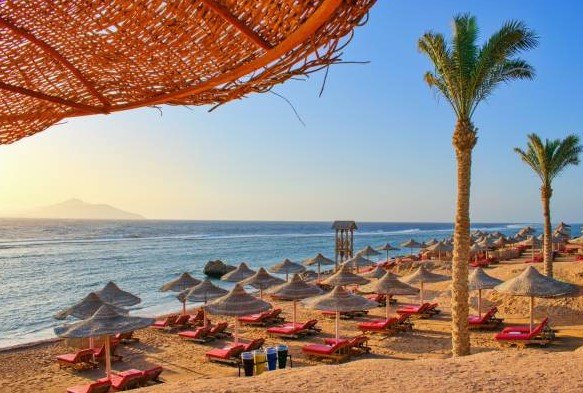In Egypt’s Wadi al Gemal National Park, a secretive tourism deal is putting the pristine Ras Hankorab beach at risk. Construction started in March 2025, sparking outrage from conservationists over potential harm to endangered sea turtles and resilient coral reefs in this protected Red Sea area.
The Shadowy Deal Sparks Alarm
Excavators arrived on the white sands of Ras Hankorab in early March 2025, ready to build a resort under a contract between a government body and an unnamed investment firm. Park staff and environmental groups quickly raised concerns, leading to thousands signing a petition to save the site.
The environment ministry stepped in, halting work and removing machinery. Yet questions linger as parliamentary inquiries for details remain unanswered, with insiders suggesting the project is not fully abandoned.
This beach, part of the Wadi al Gemal National Park established in 2003, features crystal clear waters where swimmers mingle with marine life. The deal highlights tensions between economic needs and nature protection in Egypt’s southern Red Sea region.
Environmental Risks to a Unique Ecosystem
Ras Hankorab boasts coral gardens that experts praise as highly resistant to climate change. Endangered green sea turtles nest here under starry skies, free from light pollution.

Development could bring noise, lights, and crowds that disrupt this balance. Marine biologist Mahmoud Hanafy warns that heavy activity might destroy the habitat, affecting turtles and other species.
The area hosts diverse wildlife, including rare birds and fish. Conservation reports note that similar projects elsewhere have led to habitat loss and biodiversity decline.
Key species at risk include:
- Green sea turtles, which rely on dark beaches for nesting.
- Dugongs, grazing on seagrass beds threatened by construction.
- Various coral species, vital for marine resilience amid warming oceans.
Egypt’s Push for Tourism Growth
Egypt faces its deepest economic crisis in years, with high debt and inflation. To boost revenue, leaders are expanding coastal developments along the 3,000 kilometer shoreline.
A major $35 billion deal with the UAE in 2025 for Ras al Hekma on the Mediterranean coast set a precedent. In June 2025, President Abdel Fattah al Sisi allocated 174,400 square kilometers of Red Sea land to the finance ministry to ease debt.
Tourism, employing many in the Red Sea area, aims to draw 30 million visitors by 2028, up from about 15 million now. Yet past growth has harmed environments, as noted in 2019 UN reports.
| Year | Tourist Arrivals (Millions) | Revenue (Billions USD) | Environmental Incidents Reported |
|---|---|---|---|
| 2023 | 14.9 | 13.6 | 45 |
| 2024 | 15.5 | 14.2 | 52 |
| 2025 (Projected) | 17.0 | 15.5 | 60+ |
| 2028 (Goal) | 30.0 | 30.0 | Potential rise if unchecked |
This table shows rising tourism but also growing environmental concerns.
Luxury resorts have displaced communities and damaged habitats in places like Hurghada, turning vibrant areas into overbuilt zones.
Voices from Experts and Locals
Local communities and experts call for sustainable options. Hanafy suggests eco friendly tourism that preserves the beach’s natural state.
Conservation groups push for transparent planning to avoid repeating mistakes from other Red Sea spots. A 2025 report on Hurghada’s degradation urges better governance for protected areas.
Residents in nearby Marsa Alam worry about job promises versus long term ecological loss. One local guide said the beach’s untouched beauty draws eco tourists who value nature over resorts.
International bodies like the UN Development Programme highlight the site’s value as one of the last wild Red Sea shores.
Balancing Economy and Conservation
Egypt’s strategy ties into global trends where nations seek tourism dollars amid climate challenges. Recent events, like the 2025 COP30 talks on biodiversity, stress protecting reefs.
Logical steps could include stricter environmental assessments for deals. Successful models from Costa Rica show eco tourism boosting economies without harm.
For Ras Hankorab, the halt offers a chance to rethink plans. Experts recommend low impact activities like guided snorkeling to generate income while safeguarding the ecosystem.
As debates continue, the site’s fate could set a precedent for Egypt’s coastal future.
What do you think about balancing tourism and nature protection? Share your thoughts in the comments and spread the word to raise awareness.
